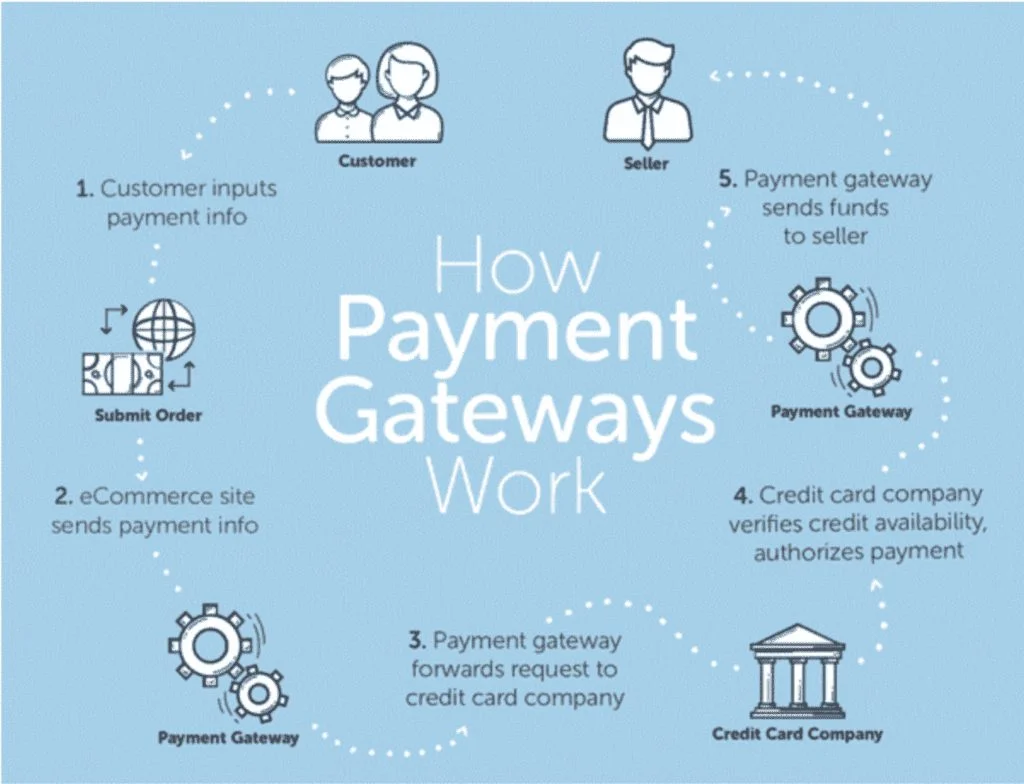In today’s fast-paced business environment, seamless and efficient payment processing is crucial to staying ahead of the competition. Whether you’re a small business owner or managing a large corporation, understanding the importance of using a merchant account for payment processing can help you streamline your operations and provide a better customer experience.
A merchant account is a type of business bank account that allows merchants to accept card payments, whether through credit, debit, or online methods. It acts as an intermediary between your business and the financial institutions that facilitate transactions. Understanding how it works and the benefits it offers is essential for modern businesses that rely on electronic payments.
1. Faster Transactions and Payment Processing
One of the main advantages of having a merchant account is the speed at which transactions are processed. With traditional payment methods, transactions may take several days to process and settle. However, with a merchant account, transactions are authorized in real time, ensuring that payments are processed quickly. This is particularly beneficial for businesses that need immediate access to funds for operational needs.
When customers make payments via credit or debit cards, the process is often instantaneous. The merchant account ensures that funds are transferred promptly, allowing businesses to maintain cash flow and make timely payments to suppliers or employees. Additionally, the merchant account can handle multiple payment methods, such as online payments, point-of-sale (POS) systems, or even mobile wallet transactions, providing flexibility to both businesses and their customers.
2. Improved Customer Experience
Today’s customers expect convenience and flexibility when making purchases. Offering multiple payment options through a merchant account enhances the overall shopping experience for your customers. Whether they prefer paying via credit cards, debit cards, or digital wallets, a merchant account enables your business to meet those demands.
By allowing customers to pay how and when they want, businesses can increase customer satisfaction and loyalty. A smooth and efficient payment process reduces friction during the checkout stage, which can prevent cart abandonment and increase conversion rates. A merchant account also supports recurring billing for subscription-based businesses, enabling automated payments that customers can trust.
3. Enhanced Security Features
Security is a top priority when handling customer payments. A reputable merchant account comes with advanced security features to protect both your business and your customers. The use of encryption and tokenization technology helps safeguard sensitive data, such as credit card numbers and personal information.
PCI-DSS (Payment Card Industry Data Security Standard) compliance is another key feature offered by merchant accounts. This standard sets security requirements for businesses that handle credit card transactions, ensuring that customer data is protected from fraud and cyberattacks. By using a merchant account, businesses demonstrate their commitment to protecting customer privacy and building trust with their clientele.
Additionally, many merchant account providers offer fraud detection tools, such as transaction monitoring, chargeback protection, and alerts for suspicious activities. These features can help businesses reduce the risk of fraud and financial loss.
4. Better Cash Flow Management
A merchant account allows businesses to receive payments quickly, which can significantly improve cash flow management. Faster processing times mean you don’t have to wait for checks to clear or cash deposits to be made, allowing your business to maintain financial stability.
With real-time payment processing, businesses can easily track and manage cash flow, ensuring they have enough funds to cover daily expenses, pay bills, and invest in growth opportunities. Merchant accounts also offer reporting tools and transaction histories that can help businesses keep track of their sales and financial performance.
5. Global Reach and Increased Sales Opportunities
In today’s globalized economy, businesses are no longer limited by geographic boundaries. A merchant account allows businesses to accept payments from customers worldwide, opening up new markets and increasing sales opportunities. Whether you’re selling products or services, a merchant account enables you to accept payments from international customers in multiple currencies.
With e-commerce continuing to grow, offering international payment options can give businesses a competitive edge. A merchant account can integrate with various online payment gateways and shopping carts, enabling businesses to offer smooth, secure, and convenient online transactions for customers across the globe.
6. Access to Payment Analytics and Insights
A significant benefit of using a merchant account is the access it provides to valuable payment analytics and business insights. Merchant account providers often offer dashboards and reporting tools that allow you to monitor transaction trends, sales patterns, and payment performance.
With this data, you can identify which payment methods are most popular among your customers, track revenue growth, and assess your marketing strategies’ effectiveness. By analyzing these insights, you can make more informed business decisions, optimize pricing, and tailor your services to meet customer preferences.
7. Lower Risk of Handling Cash

For businesses that still rely on cash transactions, handling physical money can be risky and cumbersome. Cash must be stored securely, transported to the bank, and accounted for, which can be time-consuming and costly. With a merchant account, the need for cash handling is eliminated.
By moving to electronic payments, businesses reduce the risk of theft, loss, or human error in cash management. Electronic transactions are automatically recorded, making bookkeeping and accounting simpler. This can save businesses time and money in administrative costs, while also ensuring that transactions are accurately documented.
8. Subscription and Recurring Billing Management
For businesses that operate on a subscription-based model, a merchant account provides an efficient way to manage recurring billing. Whether you’re offering monthly memberships, software-as-a-service (SaaS) subscriptions, or regular product deliveries, a merchant account automates the billing process.
This convenience not only ensures timely payments but also strengthens customer relationships. With automated billing, customers don’t have to worry about remembering to make payments, leading to higher retention rates and reduced churn. Merchant accounts also make it easier to adjust subscription plans, offer discounts, and handle billing inquiries.
9. Integration with Business Tools
Merchant accounts can be integrated with a wide range of business tools, such as accounting software, inventory management systems, and customer relationship management (CRM) platforms. This integration streamlines business operations and allows for better data synchronization across multiple systems.
By automating tasks such as invoicing, payment tracking, and inventory management, businesses can reduce errors, improve efficiency, and save time. For example, when a payment is processed, the merchant account can automatically update inventory levels, allowing businesses to track product availability in real time.
10. Enhanced Credibility and Trustworthiness
Having a merchant account gives your business a professional appearance and boosts customer confidence. When customers see that you accept credit and debit card payments, it signals that your business is legitimate and trustworthy. This is especially important for e-commerce businesses, where customers may be hesitant to provide their payment information online.
Additionally, a merchant account can help businesses establish stronger relationships with financial institutions and payment processors, which can lead to better rates and services over time. By working with reputable payment providers, businesses can ensure they’re offering the best possible experience for their customers.
11. Compliance with Legal and Industry Standards
In many industries, businesses are required to comply with specific regulations related to payment processing. For example, the healthcare, legal, and finance sectors often have strict guidelines for how payments must be handled to protect customer data.
A merchant account can help businesses ensure they remain compliant with these standards, reducing the risk of penalties or legal issues. By adhering to industry regulations, businesses can build trust with customers and protect their reputation.
A merchant account
Incorporating a merchant account into your payment processing strategy can have numerous benefits for your business. From faster transactions and improved customer satisfaction to enhanced security and better cash flow management, a merchant account provides the tools you need to run your business smoothly.
Whether you’re a small business or a large enterprise, using a merchant account can open up new opportunities for growth and expansion. By offering multiple payment options, protecting customer data, and gaining valuable insights into your financial performance, a merchant account can help your business stay competitive and thrive in today’s digital economy.
As the payment landscape continues to evolve, having a reliable and secure payment processing solution will remain a key factor in the success of your business. Investing in a merchant account is an investment in your future growth and long-term success.

